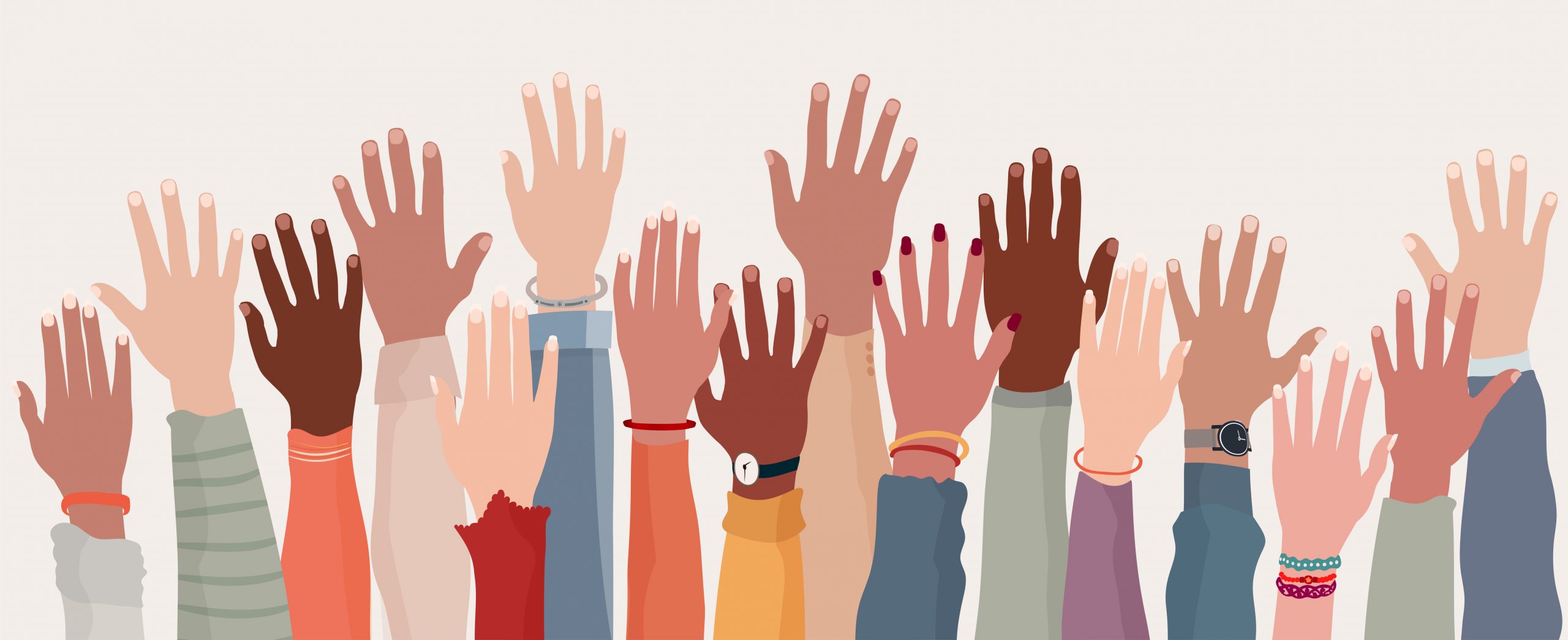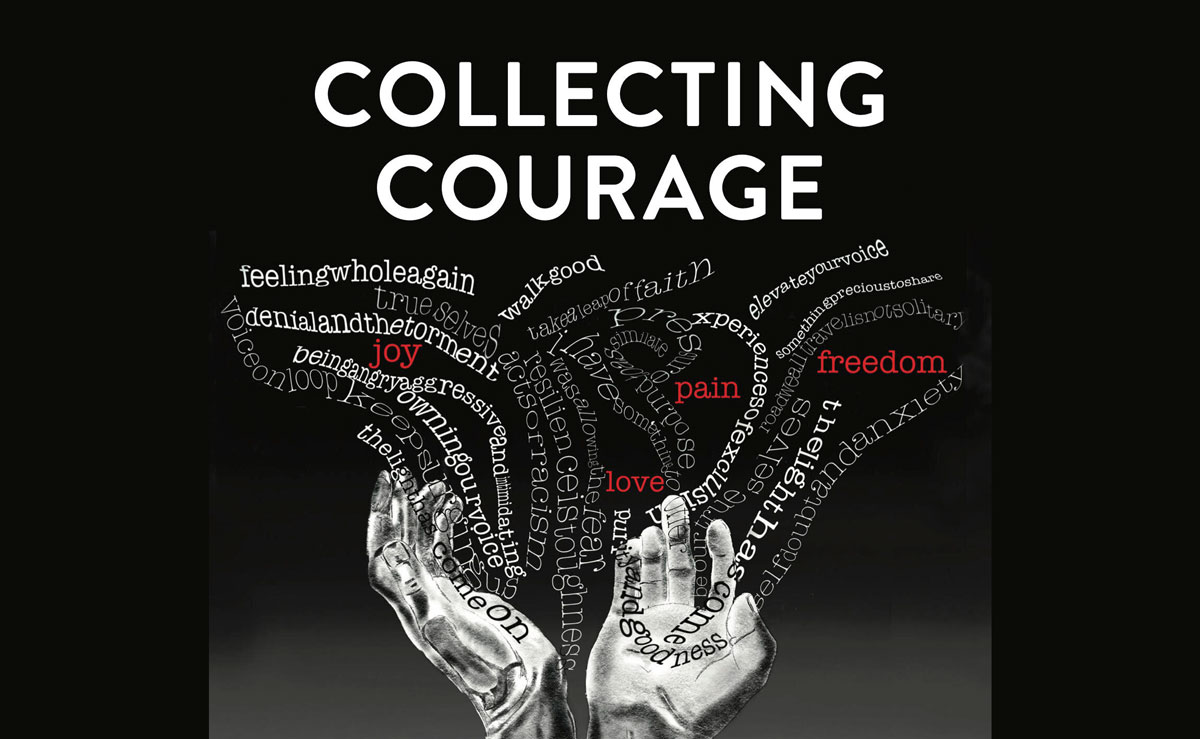What can I do?
That’s the question I had after I saw George Floyd being slowly killed by a white police officer.
Since college, I’ve considered myself to be engaged in issues of social justice. I mean, I volunteered in the inner-city of Philadelphia, lived in the neighborhoods of the kids I worked with, went to church in a predominately black neighborhood and did what a lot of nice, social-justice-conscious white people do.
But, the George Floyd murder made me wonder if I was doing enough.
Yes, I considered myself an ally, but what was I doing to be anti-racist and call out white supremacy?
I must admit, I wasn’t doing much. I had become the “white moderate” that MLK warned us about. While I was an ally, I wasn’t acting!
As you may know, Veritus has been on a journey for the past couple of years to figure out how we can become not just an ally to Black and Brown fundraisers and non-profit leaders, but to create equity and become a safe place for all.
We hired a DEI consultant to look at how we do our work, how we hire, and how we engage all members of our community. We’ve held discussions and built partnership to elevate diverse voices. We’re making some progress, but it feels slow.
Then, last weekend came the news of the mass murders in Buffalo.
This is something that as a white man, I will never understand: what would it feel like to feel scared of being shot just because of the color of my skin? I can’t imagine the trauma that would cause. And, when I read some of the posts on LinkedIn from Black fundraisers, I can’t imagine their pain. Many of the posts talk about being exhausted.
If you are a white non-profit leader, you may be asking yourself, what can you and your organization do? Or perhaps you’re wondering if this is even relevant and something you should be speaking about if you aren’t a racial justice focused organization. In truth, we all need to be speaking about this and committing to this journey. This is about people and community. And from my perspective, organizations and leaders who have dedicated their lives to doing good in the world should be leading the effort to create belonging in our society. If you’re looking for some specific action steps, here’s what I shared recently on LinkedIn:
-
Take care of your people.
You have no idea the pain this is causing your black (and other) staff members. Create a space for conversation. As a leader, speak out about it. Don’t ignore it. And this has nothing to do with whether or not you have a mission that has anything to do with racial justice issues. Even if you are trying to rescue farm animals, this is important to your staff.
-
Recommit or start your DEI efforts.
The George Floyd murder was a catalyst for us at Veritus to really look at ourselves and make a commitment to not just have diverse staff, but to make that they are given a voice to be heard and feel safe. If you haven’t started, the Buffalo murders could be the catalyst to make a change in your organization.
-
Focus on partnerships and create community.
Start partnerships with diverse organizations to work on justice issues together. Take the time to make meaningful relationships with people in your community. Give voice to those who have been kept quiet. Use the platform you have created to amplify those voices.
Finally, here are some resources on racial justice and equity that I know will help because I’ve read and listened to them myself:
- Read Collecting Courage, a collection of stories from black fundraisers of what it’s like to be black in a mostly white fundraising community.
- Listen to Kia Croom and The Black Fundraiser’s podcast
- Listen to our Nothing But Major Gift Podcast where we had Kia Croom on as our guest. Her message is powerful.
And Richard and I strongly urge you to listen to the podcast Seeing White. This gives you the whole history of the human-made construct of race, systematic and institutional racism, and why it’s hard for white people to see the advantages they have, simply because they are white.
Powerful stuff.
Is it enough? No. But it’s start to a life-long journey to make our communities, and specifically the non-profit sector, just and equitable, so it’s a safe place for all people to be.
Jeff






Thank you for this post. For several years I’ve struggled with what to do when a major donor says something racist. A few months ago, one of my colleagues and I met with a new major donor. He was making a $100K+ gift to fund scholarships at our community college. He was talking about the war in Ukraine and how he was frustrated that a young Ukrainian woman that he knew was not able to gain permanent residency in the US and was now back in what had become a warzone. He then said, “We can’t seem to secure our southern border and let all those people come to the US, but turn away normal people like my friend.” I was shocked and horrified, and I’m sad to say that I didn’t say anything. My colleague with me in the meeting is Latino and I apologized to him afterwards for sitting there, frozen. I felt horrible. I was not anti-racist in that moment. What do we say when a $100K gift is on the table? Any advice you or your followers have would be greatly appreciated.
Thank you so much Deedra for sharing and being vulnerable about your experience. Many of us have been there, it shakes us up and can be a motivation to make a plan for next time something like that happens. In conversations with a significant donor, there’s a power dynamic at play which adds an extra challenge to speaking up. But there are ways to have conversations about racial justice issues when we prepare and educate ourselves. And this is an area where all of us at Veritus are still learning, so you’re not alone.
Try to use this as an opportunity to get more educated through joining a DEI training or community conversation where you can start building your skill in having these conversations. Above all, take responsibility to seek out training and reading about this, rather than relying on colleagues of color to help you process these things. If we can help in any way, please feel free to reach out.
My response to Deedra’s question is slightly different. I believe one of the best ways to address issues like this is to pause…take a breath…and ask the donor who made the statement a question: I hear you…but I am curious why do you say that?
Based on the donor’s response, you could enter into a fruitful conversation about the value of people from other countries who are refugees from war-torn countries like his friend. Some of those same people are seeking entry into our country too…
I realize this is a difficult situation, but we can help broaden our donors’ perspective on equality simply by asking a non-offensive question and waiting for an answer that enables us to introduce another point of view without offending the donor into not giving the generous gift…